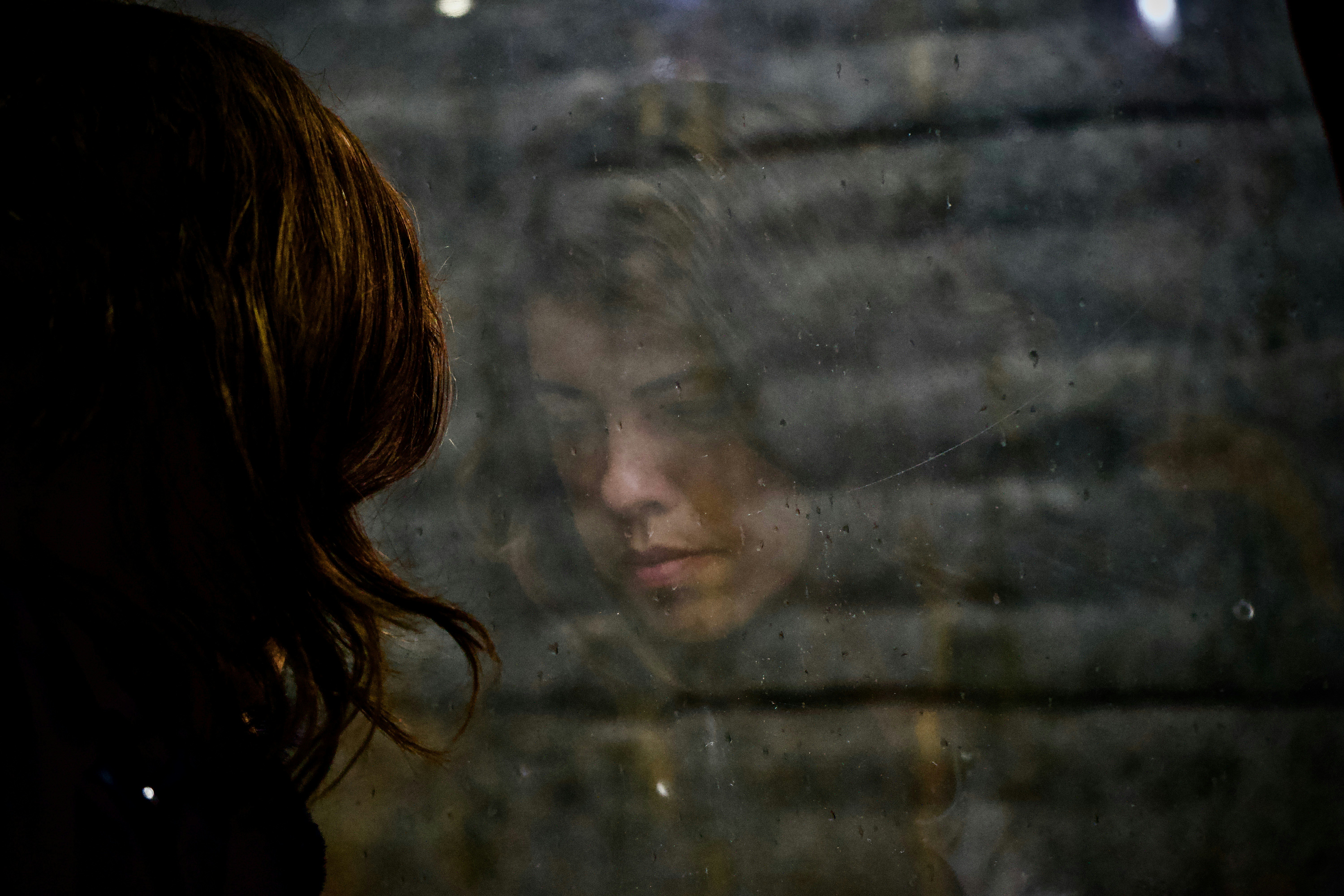Relapse is a common occurrence on the path to recovery, affecting between 40 to 60 percent of individuals who receive treatment for substance use disorders. However, it is important to understand that relapse is not a sign of failure but rather a detour on the journey towards sobriety. By recognizing the stages of relapse and the triggers that can lead to it, individuals can take proactive steps to prevent relapse and maintain their recovery. Read on to learn more about the 10 stages of relapse, which can provide a roadmap to help individuals navigate their recovery journey with confidence and resilience.
Stage 1: Denial
During the first stage of relapse, denial plays a significant role. Whether you are fresh out of an inpatient program or have been in recovery for years, you may experience fleeting thoughts and feelings of missing drugs or alcohol. The anxiety and fear of using again can be overwhelming, leading to the suppression of these emotions.
Denial is an emotional avoidance mechanism that prevents us from being honest with ourselves and distances us from reality.
It is essential to acknowledge these fleeting thoughts and emotions rather than burying them. By recognizing and addressing denial, you can take proactive steps toward relapse prevention. You are a person in recovery. Remember, it’s natural to think or even reminisce about drinking or using drugs. It’s what you do with those thoughts that matter – suppression only leads to secrets.
Stage 2: Avoidance and Defensiveness
In the second stage of relapse, you may convince yourself that returning to old habits is not an option and you may want to exercise “strong willpower.” This stage is characterized by avoidance and defensiveness. Rather than analyzing the red flags, individuals worry excessively about others.
To divert attention from their situation, individuals may offer unrealistic advice on recovery or refuse to identify with those who are struggling or using substances.
This stage may also involve excessive attendance at 12-step meetings as a distraction. However, it is crucial to differentiate healthy coping mechanisms from compulsive or impulsive activities. Keeping busy is a wonderful thing in recovery, but if you’re keeping busy to distract yourself from life on life’s terms, you’re still repeating the same processes that you did when you were using. Even healthy things, such as 12-step meetings, going to the gym, or working can become destructive in excess.
Stage 3: Crisis Building
During this third stage, you may experience a sense of crisis building up. This stage is characterized by a single thought or fear that replays in your mind. This could lead to the catastrophizing of feelings, where you believe everything is going wrong.
Negative thought patterns can lead to minor depression, affecting sleep, concentration, and mood.
Make support-seeking during this stage a priority and don’t isolate. Connecting with loved ones, attending therapy sessions, or engaging in support groups can help you navigate this challenging phase. Sometimes, you may find that you were more addicted to your chaotic life than you were to your substance of choice, and subconsciously (or consciously) recreating this chaos is a precursor to picking up the actual drink. Avoid creating crises that don’t exist. A good rule of thumb to turn the hamster wheel off in the brain temporarily is, “Move a muscle, change a thought.”
Stage 4: Immobilization
During immobilization, you may experience feelings of pessimism and a lack of action. The worry from the previous stage compounds, resulting in a state of immobilization. Despite envisioning more hopeful scenarios, individuals must take proactive measures to achieve them.
Feelings of guilt and the desire to use become intertwined in their thoughts.
In their daydreams, they may regain control over their addiction, but in reality, personal failures reinforce the belief they will never get better. Challenging these negative thought patterns and seeking support from loved ones and professionals is crucial. Self-talk is also very important here.
When you find yourself headed down a negative road, respect, reflect, and regain. In other words, respect the thoughts you are having as only those – thoughts. Remind yourself of how far you’ve come and reflect on reality instead of unwanted thoughts. Next, regain control over your thoughts and point them in a positive direction. This doesn’t mean playing the part of Pollyanna, but staying in negative thought patterns consistently only leads to depression, relapse, and other mental health issues.
Stage 5: Confusion and Overreaction
The fifth stage of relapse is marked by confusion and overreaction. Individuals may become easily irritated and overreact to everyday circumstances. They may fear that their friends, family, and sober network will notice their loss of focus on sobriety. Anger and overreactions can strain relationships and create tension.
It is crucial to address these feelings and seek healthy coping mechanisms instead of resorting to substance use. Engaging in exercise, mindfulness, or creative outlets can help individuals manage stress and difficult emotions.
This stage can often occur when you “get your life back.” As you progress in sobriety, you may get a great job or your old one back, you may reunite with your family, and you may add a list of new interests to your repertoire. However, juggling everyday life while keeping sobriety the number-one priority can be hard. There are days you’ll forget to pray or seek spiritual guidance. You might not attend a meeting for a whole week. You may have to skip your therapy appointment because of your job. These are all okay – as long as they don’t become habitual. Life happens, and it certainly still happens in recovery.
Being stressed and feeling shame or guilt over “missing the mark” is a precursor to relapse. Gather yourself, make some time for self-care, and put sobriety back on top ASAP.
Stage 6: Depression
In the sixth stage of relapse, feelings of depression intensify. Individuals may experience difficulty sleeping, changes in appetite, and a lack of motivation. Engaging in recovery activities such as attending meetings or making plans becomes harder.
It is crucial to recognize the signs of depression and seek professional help to address these underlying issues.
Reaching out to therapists, counselors, or recovery coaches can provide much-needed support during this challenging phase. Building a solid support network is essential in maintaining resilience and fostering a sense of belonging.
When you begin your recovery journey, it’s wise to build a support network. A group of people you can count on when life becomes rough is an immeasurable commodity. If you hit the relapse stage of depression, your people should know you well enough to check on you if they haven’t heard from you. However, other people get busy too – you still need to reach out.
It can feel impossible to jump back in the flock if you’ve wandered off a little bit. If so, make small goals, like, “I will call or text three people today to check in.”
Stage 7: Behavioral Loss of Control
The seventh stage of relapse is characterized by a loss of control over behavior. Individuals may become dissatisfied with their recovery journey, feeling disappointed in themselves. They may start neglecting meetings and appointments, justifying their choices by believing their difficult time exempts them from seeking support.
Abandoning support systems and rejecting outside help can lead to further isolation and conflict with loved ones.
It is essential to recognize that seeking support is not a sign of weakness but rather a courageous step toward maintaining sobriety. Connecting with peers, attending support group meetings, and engaging in therapy can help individuals regain control.
During this stage, you may find yourself distancing from other people and engaging in impulsive acts, such as a new tattoo, new hair color, expensive purchases, vacations, etc. It’s easy to justify these actions because you might say, “Well, at least I’m not using drugs or drinking!”
Some days will indeed be like that, but recovery is about much more than simply not using drugs or drinking alcohol.
Stage 8: Recognition of Loss of Control
In the eighth stage of relapse, individuals can no longer deny the loss of control they are experiencing. This recognition can be painful and anxiety-inducing. The urge to use becomes constant and overpowering, making it challenging to focus on other aspects of life.
Feelings of self-pity may arise, leading individuals to convince themselves that a momentary lapse will not have serious consequences.
It is crucial to confront these thoughts and seek support from loved ones and professionals. Honesty and open communication with a therapist, counselor, or sponsor can help individuals navigate this critical stage of their recovery journey.
At this point, you may actively notice that your actions may be out of control, even though you haven’t “picked up” yet. If you haven’t reconnected with your support system, mental health professional, addiction counselor, recovery coach, or therapist, now is the time.
Stage 9: Option Reduction
The ninth stage of relapse is characterized by the reduction of options. Negative emotions and urges may lead to feelings of resentment. Individuals may withdraw from meetings, therapy sessions, and support groups, isolating themselves further.
During this stage, it is important to reach out to loved ones and professionals and reestablish a support network.
By sharing their struggles and seeking guidance, individuals can regain a sense of connection and support. Self-care activities, such as journaling, practicing mindfulness, or engaging in hobbies, can also provide a healthy outlet for emotions.
During stage 9, you may get far away from your support system and recovery meetings. Several things can happen – you may isolate yourself from everyone, or you may find yourself attending bars, clubs, and other places that are very dangerous when someone is in the relapse stages.
Stage 10: The Relapse Episode
The final stage of relapse is the relapse episode itself. This stage represents the culmination of tensions and turmoil experienced throughout the previous stages. Individuals may feel like they have lost control of their lives, experiencing thoughts of suicide and an inability to function in daily life.
Following a relapse episode, individuals may feel ashamed and guilty, believing that they are beyond help.
Prior to the relapse, you may feel depressed and hopeless, or you may be of the “one won’t hurt” mindset. Both are dangerous places to be for someone with a substance abuse disorder. Prior to picking up, pick up the phone.
It is important to remember that relapse is not the end of the road. Recovery is a journey, and setbacks may occur. By reaching out to their support network, attending meetings, and seeking professional help, individuals can find the strength and resilience to continue their recovery journey.
Relapse Prevention Strategies
Relapse prevention is a crucial aspect of the recovery journey. By understanding the stages of relapse and implementing effective strategies, individuals can increase their chances of maintaining long-term sobriety. Here are some strategies that can help:
- Build a strong support network: Surround yourself with individuals who support your recovery journey and understand your challenges.
- Attend regular support group meetings: Participate in support group meetings to connect with others in recovery and gain valuable insights.
- Engage in healthy coping mechanisms: Develop healthy coping mechanisms to manage stress and difficult emotions, such as exercise, mindfulness, and creative outlets.
- Identify and avoid triggers: Recognize the triggers that can lead to relapse and take steps to prevent or manage them effectively.
- Practice self-care: Prioritize self-care activities that promote physical, emotional, and mental well-being.
- Seek professional help: Reach out to therapists, counselors, or recovery coaches for guidance and support.
- Develop a relapse prevention plan: Create a personalized relapse prevention plan that includes strategies for each stage of relapse.
- Stay accountable: Stay connected with your support network and be accountable for your actions and choices.
- Celebrate milestones: Acknowledge and celebrate your achievements and milestones in recovery to stay motivated.
- Never give up: Remember that setbacks are a part of the recovery journey. Stay resilient, seek support, and continue moving forward.
Implementing these strategies and remaining vigilant can empower individuals to prevent relapse and maintain their recovery journey. Remember, you are not alone on this path; reaching out for support is a sign of strength. Stay committed, stay connected, and embrace the resilience within you.
If you or a loved one is struggling with addiction, Mountainside can help.
Click here or call (888) 833-4676 to speak with one of our addiction treatment experts.

 By
By 






